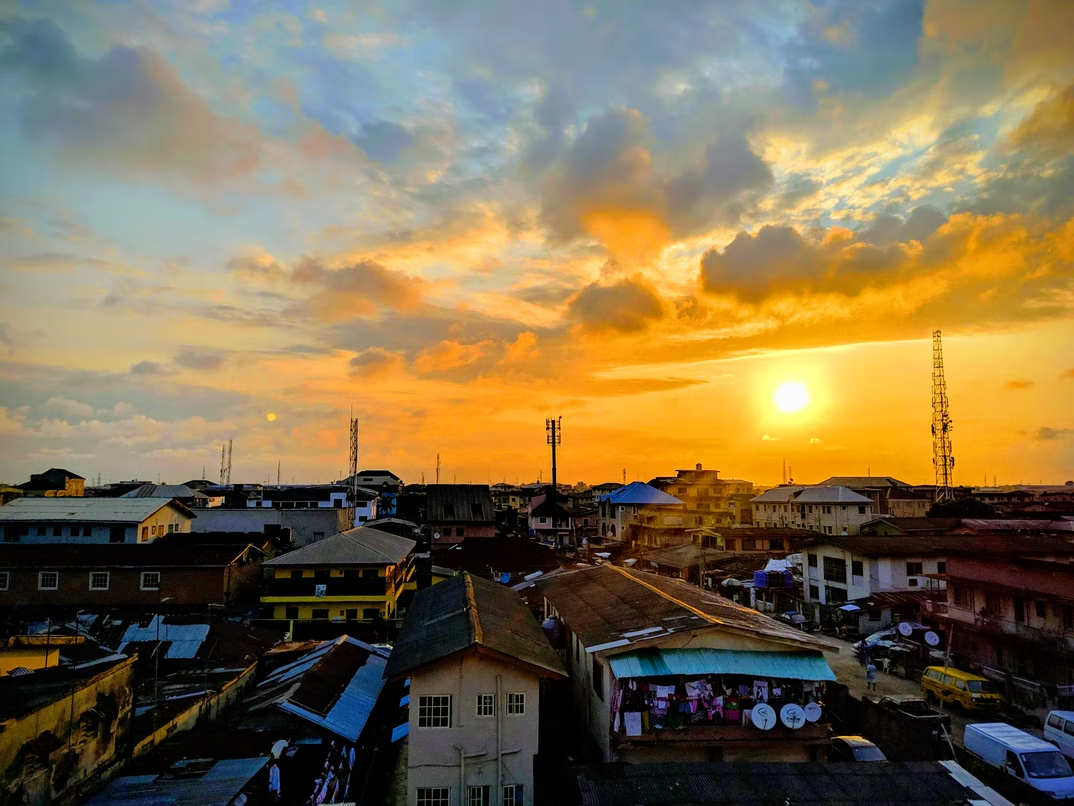
Nigeria is a very interesting country in Africa, you can maybe think that the main industry are mining, steel or services but one of the most interesting and growing industry in Nigeria is the film industry.
Nollywoodis one of the main movie producers in the world, competing with Bollywood and Hollywood with movies like October 31th or King of Boys as one of the most important movies from Africa in recent years.
How could a country like Nigeria foundate a great filmaking industry like this? We are going to see the history of Nollywoodfoundation in this article.
How Could Nigeria Establish Nollywood?
With a population of over 160 million people, Nigeria is the most populous country in Africa and the seventh most populated in the world.
It is located in Western Africa, between Benin and Cameroon, on the Gulf of Guinea, with English as the common language. Nigeria's economy is one of Africa's fastest growing, and it is expected to be the continent's third largest.
It is listed among the "next eleven" economies. Nigeria is home to approximately 100 ethnic groupings, 400 spoken dialects, and a diverse range of colorful traditions.
The Film Culture In Nigeria
Nigerian film culture dates back to the colonial era, when cinema complexes operated in the country's major cities. Because distribution and exhibition were controlled by foreigners, there were few Nigerian elements in the films presented at such cinemas.
In the 1950s, cinema visual entertainment was supplemented by Yoruba traveltheater, the most prominent of which were the Agbegijo and Alarinjo theatrical companies, which featured artists such as Duro Ladipo, Ishola Ogunmola, Lere Paimo, Oyin Adejobi, and others.
However, as Hubert Ogunde, Moses Olaiya, and Jab Adu entered the film industry in the late 1960s and early 1970s, Nigerian components in films presented in theaters increasingly grew.
It could be argued that the history of filmmaking in Nigeria reflects changes in the Nigerian political economy, and that the emergence of Nollywood was an unintended consequence of the Nigerian people's reaction to the economic downturn of the 1980s, as well as the rise of military dictatorships' political culture.
The Oil Boom, Economic Growth And "The Son Of Africa"
The oil booms of 1973 and 1978 had a significant impact on Nigerian cinema culture: foreign capital poured into the industry as foreign businessmen, particularly Lebanese and Indians, invested in the construction of cinema complexes, and a wide range of citizens had extra cash to spend on cinema houses and home television sets thanks to increased social spending by the government.
As a result, the industry exploded. At the time, "Son of Africa" was produced and directed by a Lebanese.
First Productions
The production of Wole Soyinka's directed by black American film director Ossie Davies and produced by Ola Bolagun, the sole Nigerian film maker with international renown at the time, was catalyzed by this cinematic boom .
With his Ajani Ogun and his association with the Hubert Ogunde Theatre, Balogun paved the way for popular cinema in Nigeria.
The dependency theory, which contends that the First World's economic dominance of the so-called Third World is the reason for the continuous underdevelopment, gained traction in academic circles during the 1970s .
Nigeria and other African states reacted by adopting programs aimed to give Africans more voice in their economies by purchasing shares in foreign corporations, spurred on by leftist opponents who were becoming increasingly outspoken and popular.
With film culture dead, television viewing grew in popularity. In the 1980s, Nigerian filmmakers from the 1970s became television film producers.
The class of cinema producers to television producers included Eddie Ugbomah and Jimi Odumosu, who is generally credited with the "coincidental invention" of the notion that video production could be so lucrative.
The 80's
In the 1980s, it was common to see video copies of popular television shows being sold on the streets in Southern Nigerian cities.
This is precisely what some Nollywood producers/distributors eventually used to help grow the industry. But, as with most human inventions, the insight that this may be profitable came about by chance.
And the tale behind this occurrence is fascinating. The origins of Nollywood may be traced back to Jimi Odumosu's horror film Evil Encounter (1980), which is credited with laying the groundwork for the frightening moments that have become synonymous with Nollywood.
According to the tale, Odumosu was travelling from Ikeja to Victoria Island following an elaborate promotion of the film, which included a full-length airtime the night before, when he observed street hawkers selling copies of the film that had been replicated from a television broadcast the night before.
The Danger Of Piracy In Nigeria Film Industry
Alaba market is one of Nigeria's greatest pirate and video distribution hotspots today, and the strong association between the creation of Nollywood and film piracy spurred one of Nollywood's characteristics: fast production.
Another revolution in the entertainment business triggered the emergence of the Nollywood phenomenon.
The Popularity Rise In 90's And 2000's
Since the late 1990s, Nigerian television stations have been privatized; Nigeria has seen a rise in film, which was once dominated by Lebanese mafias but has recently been constructed to appeal to the Nigerian middle and upper classes.
In recent years, Silver TV Production has opened a number of high-quality classic cinemas in upscale areas around Nigeria, where clients can afford the price.
Silver Bird TV production has also worked with Nigerian film producers to help them present their films to a wider audience, and they do not accept low-quality films in their cinema, discouraging substandard filmmaking.
Although Nigerian film culture is not comparable to that of Europe or America, it is improving and has a lot of room for improvement.
What We Can Expect From Nollywood In 2022

THE LAST WEDDING (SEASON 1) {NEW TRENDING MOVIE} - 2022 LATEST NIGERIAN NOLLYWOOD MOVIES
In 2022 Nollywood is the third movie producer in the world and its movies are becoming more and more popular for its quality because of many Nigerian movie starts and producers training in British productions and in some cases in Hollywood productions.
Thats why we expect to see more super productions coming from Nigeria and its great movie industry in Nollywood.



